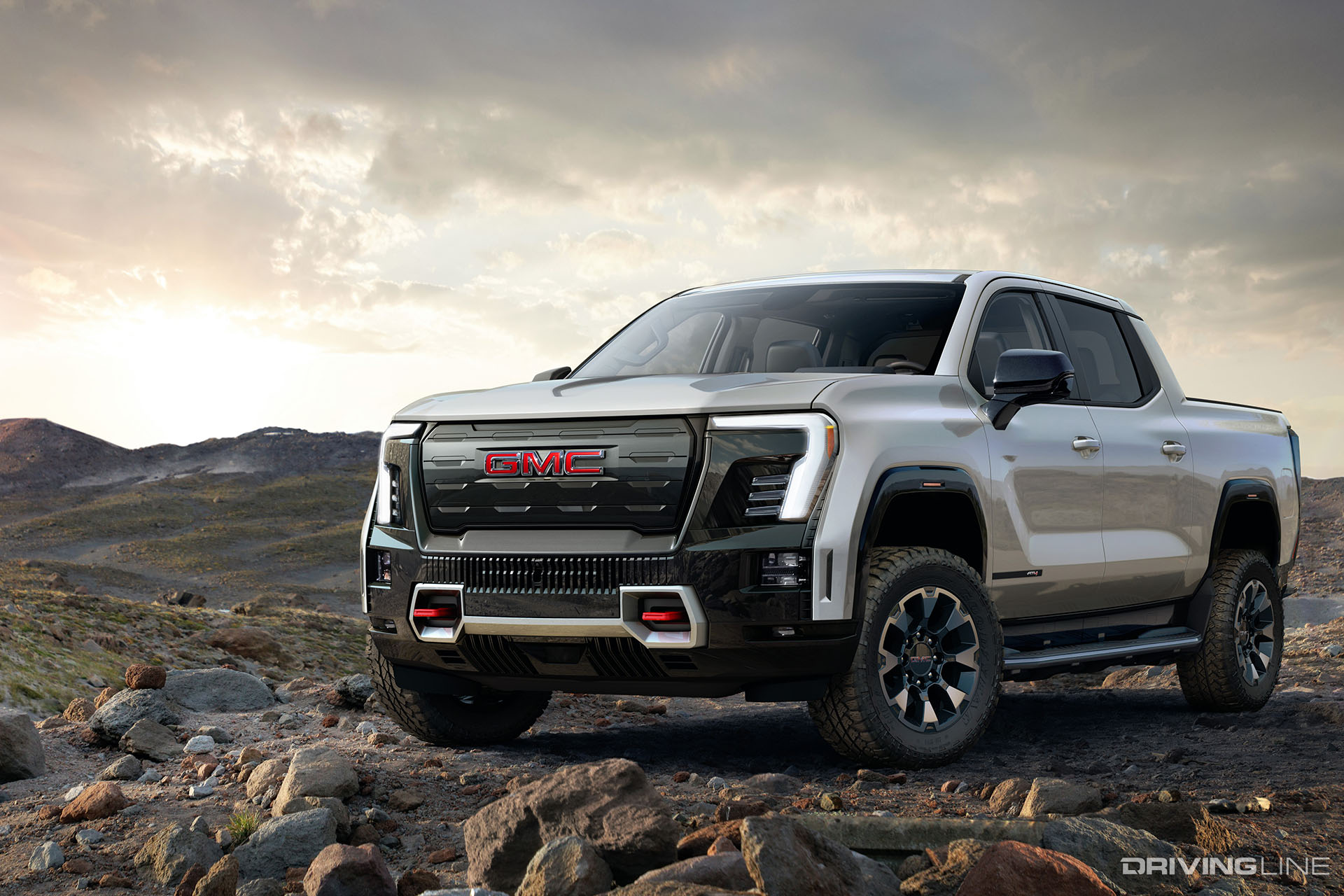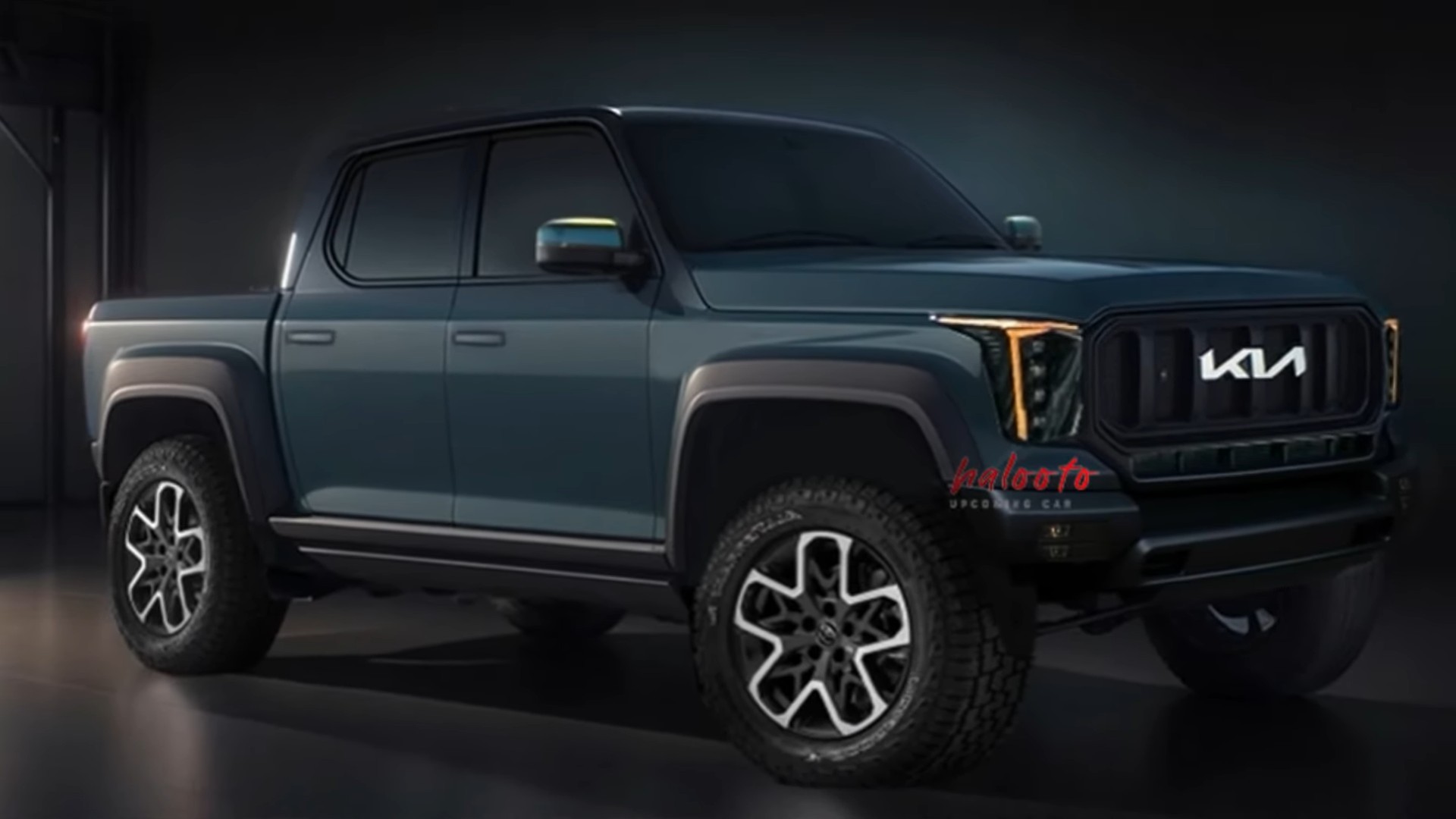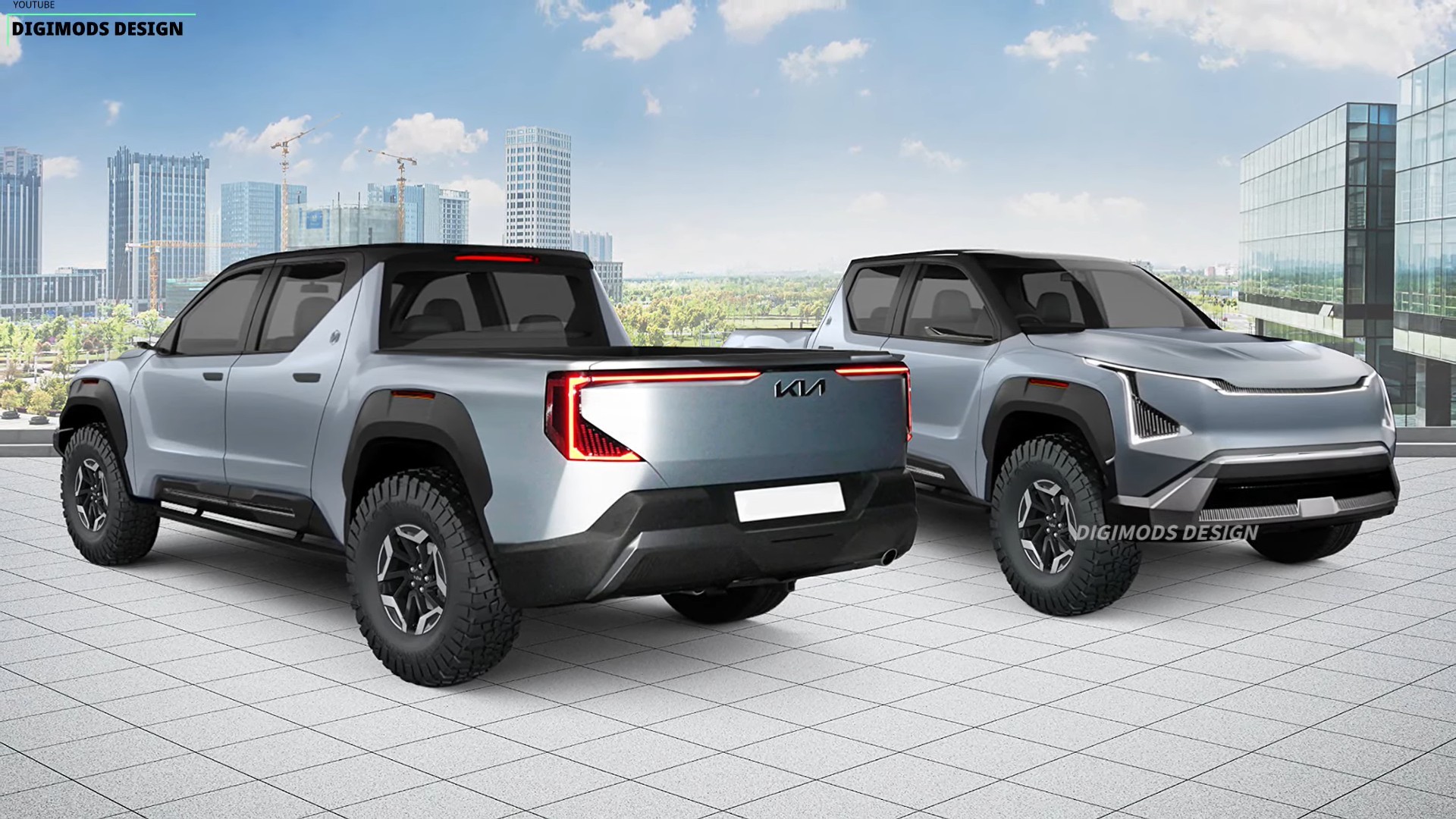Pickup Trucks Diesel: The Ultimate Guide to Power, Efficiency, and Durability pickup.truckstrend.com
In the vast landscape of automotive choices, pickup trucks hold a special place as versatile workhorses, capable family transporters, and adventurous off-roaders. Among them, diesel-powered pickup trucks stand out as a unique breed, revered for their immense power, impressive fuel efficiency under load, and legendary durability. Far more than just an engine choice, opting for a diesel pickup signifies a commitment to serious capability, whether it’s towing the heaviest trailers, hauling substantial payloads, or enduring countless miles.
This comprehensive guide will delve deep into the world of diesel pickup trucks, exploring what makes them tick, their distinct advantages, important considerations for ownership, popular models, essential maintenance, and ultimately, help you determine if a diesel truck is the right choice for your needs.
Pickup Trucks Diesel: The Ultimate Guide to Power, Efficiency, and Durability
The Powerhouse Within: Understanding Diesel Engines in Pickups
At the heart of every diesel pickup truck lies a compression-ignition engine, fundamentally different from its gasoline counterpart. Instead of spark plugs igniting a fuel-air mixture, diesel engines compress air to extremely high temperatures, which then ignites the injected diesel fuel. This unique combustion process contributes to several key characteristics:
- High Torque at Low RPMs: Diesel engines are renowned for producing massive amounts of torque (rotational force) at relatively low engine speeds. This is crucial for getting heavy loads moving from a standstill and maintaining momentum on inclines without constantly downshifting.
- Exceptional Durability and Longevity: Built to withstand immense compression ratios and operating pressures, diesel engines often feature more robust internal components like stronger blocks, crankshafts, and connecting rods. This inherent robustness contributes to their reputation for lasting hundreds of thousands of miles, often outliving the rest of the vehicle.
- Fuel Efficiency Under Load: While diesel fuel might sometimes be pricier than gasoline, diesel engines are inherently more energy-dense and efficient at converting fuel into power, especially when working hard. Under heavy towing or hauling conditions, a diesel truck will typically deliver significantly better fuel economy than an equivalent gasoline truck struggling with the same load.
Modern diesel engines in pickup trucks are sophisticated pieces of engineering, incorporating advanced technologies like:

- Turbochargers and Intercoolers: These components force more air into the engine, significantly boosting power and efficiency.
- High-Pressure Common Rail (HPCR) Fuel Systems: Deliver precise fuel injection for optimal combustion and reduced emissions.
- Exhaust Gas Recirculation (EGR): Reroutes a portion of exhaust gas back into the engine to lower combustion temperatures and reduce nitrogen oxide (NOx) emissions.
- Diesel Particulate Filters (DPF): Capture soot and particulate matter from the exhaust, preventing it from being released into the atmosphere. The DPF periodically undergoes a "regeneration" process to burn off accumulated soot.
- Selective Catalytic Reduction (SCR) with Diesel Exhaust Fluid (DEF): DEF is injected into the exhaust stream to convert harmful NOx gases into harmless nitrogen and water vapor. This system is critical for meeting modern emissions standards.

Benefits of Diesel Pickup Trucks
The unique characteristics of diesel engines translate into compelling advantages for specific truck owners:
- Superior Towing and Hauling Capacity: This is arguably the biggest draw. Diesel trucks consistently offer the highest tow ratings and payload capacities in their respective classes. The sheer low-end torque makes pulling large RVs, heavy equipment trailers, or loaded fifth-wheel campers feel effortless.
- Better Fuel Economy (Especially Under Load): While unladen fuel economy might not always be dramatically better than a gasoline counterpart, the efficiency gains become significant when the truck is working hard. For those who frequently tow or haul, the fuel savings over thousands of miles can be substantial.
- Enhanced Durability and Longevity: Diesel engines are built tough. Their robust construction often means a longer lifespan, making them a wise investment for high-mileage users or those who plan to keep their vehicle for many years. This also translates to strong resale values.
- Higher Resale Value: Due to their durability, capability, and consistent demand, diesel pickup trucks often command a higher resale value compared to similarly aged gasoline trucks, recouping some of their higher initial cost.
- Ideal for Specific Applications: Diesel trucks are the preferred choice for commercial fleets, heavy equipment operators, serious RVers, large boat owners, and anyone who regularly demands maximum performance from their truck. Their ability to handle extreme conditions and heavy loads with ease makes them indispensable tools.

Key Considerations Before Buying a Diesel Pickup
While the benefits are clear, owning a diesel pickup also comes with certain trade-offs that prospective buyers must consider:
- Higher Upfront Cost: Diesel engine options typically add several thousand dollars to the purchase price of a new truck compared to an equivalent gasoline engine. This initial investment needs to be weighed against potential long-term savings and benefits.
- Increased Maintenance Complexity and Cost: Modern diesel engines, with their intricate emissions systems (DPF, DEF, EGR), require specialized maintenance. Oil changes often involve larger quantities of specific, more expensive diesel engine oil. DEF fluid needs regular refilling. Issues with emissions components can be costly to diagnose and repair.
- Fuel Availability and Cost: While diesel fuel is widely available, it might not be at every gas station, especially in rural areas. The price of diesel fuel can also fluctuate independently of gasoline, sometimes being higher.
- Emissions Systems Management: The DPF requires periodic regeneration, which typically happens automatically during highway driving. However, frequent short trips can prevent proper regeneration, leading to DPF clogging and potential service issues. DEF levels must be monitored and refilled; running out of DEF will typically limit engine power or prevent the truck from starting.
- Cold Weather Performance: While modern diesels have improved significantly, extreme cold can still pose challenges. Glow plugs assist starting, and specific winterized diesel fuel is available to prevent gelling, but owners in very cold climates should be aware.
- Noise and Vibration: While much quieter and smoother than older generations, diesel engines still tend to be louder and produce more vibration than gasoline engines, particularly at idle.
Popular Diesel Pickup Truck Models
The diesel pickup market is dominated by the "Big Three" American automakers, with a few mid-size options as well:
Heavy-Duty (HD) Diesels
These are the titans of the towing world, built for maximum capability.
- Ford Super Duty (F-250, F-350, F-450) with Power Stroke Diesel: Ford’s 6.7L Power Stroke V8 diesel engine is a beast, consistently offering class-leading towing and payload capacities. Known for its strong performance and integrated towing technologies.
- Ram Heavy Duty (2500, 3500) with Cummins Diesel: Ram’s partnership with Cummins has created a legendary powertrain. The 6.7L Cummins inline-six turbodiesel is celebrated for its incredible torque, durability, and reliability, making it a favorite among heavy haulers.
- Chevrolet Silverado HD / GMC Sierra HD (2500, 3500) with Duramax Diesel: The 6.6L Duramax V8 turbodiesel, paired with an Allison transmission, is a formidable combination. It offers robust power and smooth delivery, making these GM HD trucks popular for both work and recreation.
Mid-Size Diesels
While less common, some mid-size trucks offer diesel options for those seeking efficiency and torque in a smaller package.
- Chevrolet Colorado / GMC Canyon with Duramax 2.8L: This smaller 2.8L four-cylinder turbodiesel provides impressive torque for its size, offering good towing capabilities for a mid-size truck and excellent fuel economy.
- Jeep Gladiator with EcoDiesel: The 3.0L EcoDiesel V6 engine offers a strong blend of torque for off-roading and towing, combined with better fuel efficiency than its gasoline counterparts in the Gladiator lineup.
Maintenance and Care for Your Diesel Pickup
Proper maintenance is paramount to ensuring the longevity and optimal performance of your diesel truck.
- Regular Oil Changes: Use the specific type and viscosity of diesel engine oil recommended by the manufacturer. Diesel engines often have larger oil capacities, so this will be more expensive than a gasoline oil change.
- DEF System Management: Keep the Diesel Exhaust Fluid tank topped up. Pay attention to dashboard warnings; ignoring them can lead to power reduction or even a no-start condition.
- DPF Regeneration: Ensure your driving habits allow for passive regeneration (extended highway driving). If you primarily do short trips, you might need to manually initiate regeneration (if available) or take the truck for a longer drive to allow the DPF to clean itself.
- Fuel Filter Replacement: Diesel fuel quality is crucial. Regularly replace your fuel filter(s) as recommended by the manufacturer to prevent contaminants from reaching the injection system.
- Cooling System: Diesel engines generate a lot of heat, especially under load. Ensure the cooling system is properly maintained with the correct coolant type and levels.
- Turbocharger Care: Allow the engine to idle for a minute or two after heavy use (e.g., towing up a long grade) to allow the turbocharger to cool down before shutting off the engine. This prevents oil coking in the turbo bearings.
- General Tips: Avoid excessive idling, especially for prolonged periods, as it can contribute to DPF clogging. Use high-quality diesel fuel. Address any warning lights promptly.
Is a Diesel Pickup Right for You? Practical Advice
Deciding on a diesel pickup requires a frank assessment of your needs and budget.
- Assess Your Primary Use:
- Frequent Heavy Towing/Hauling? If you regularly pull large trailers (RVs, boats, equipment) or carry heavy payloads, a diesel is likely your best option for power, stability, and efficiency.
- Daily Driver with Light Use? If your truck is mainly for commuting, grocery runs, and occasional light hauling, a gasoline engine might be more cost-effective due to lower upfront cost and potentially simpler maintenance. Short trips can be detrimental to modern diesel emissions systems.
- Off-Roading/Overlanding? The low-end torque of a diesel is excellent for crawling, but the added weight and complexity might be a consideration.
- Calculate Total Cost of Ownership (TCO): Don’t just look at the purchase price. Factor in:
- Higher initial cost.
- Potentially higher fuel costs (though offset by efficiency under load).
- Increased maintenance costs (oil, filters, DEF, potential emissions system repairs).
- Higher resale value.
- Insurance costs.
- Consider Your Driving Habits: If you primarily drive short distances at low speeds, a diesel’s DPF system may struggle to regenerate, potentially leading to issues. Diesels thrive on longer, sustained drives where they can reach optimal operating temperatures.
- Test Drive Both: If possible, test drive both a diesel and a gasoline version of the truck you’re considering. Pay attention to acceleration, noise levels, and overall driving feel.
- Consult Experts: Talk to mechanics specializing in diesel vehicles and owners who use their diesel trucks similarly to how you plan to.
Pickup Trucks Diesel: Example Price Table
Note: Prices are approximate starting MSRPs for base models with diesel engines in the U.S. and are subject to change based on trim level, options, dealer markups, and regional variations. This table is for illustrative purposes only.
| Manufacturer | Model | Engine Type | Horsepower (HP) | Torque (lb-ft) | Max Towing (Approx. lbs) | Starting MSRP (Approx.) | Key Features/Notes |
|---|---|---|---|---|---|---|---|
| Ford | F-250 Super Duty | 6.7L Power Stroke V8 Turbodiesel | 475 | 1,050 | 22,000 | $52,000 | Class-leading capability, integrated towing tech. |
| Ram | 2500 Heavy Duty | 6.7L Cummins I6 Turbodiesel | 370 | 850 | 20,000 | $54,000 | Legendary durability, massive low-end torque. |
| Ram | 3500 Heavy Duty | 6.7L Cummins I6 HO Turbodiesel | 420 | 1,075 | 37,090 | $58,000 | High-Output Cummins for ultimate towing. |
| Chevrolet | Silverado 2500 HD | 6.6L Duramax V8 Turbodiesel | 470 | 975 | 22,500 | $53,000 | Paired with Allison transmission, smooth power. |
| GMC | Sierra 2500 HD | 6.6L Duramax V8 Turbodiesel | 470 | 975 | 22,500 | $55,000 | Premium sibling to Silverado HD, refined interior. |
| Chevrolet | Colorado | 2.8L Duramax I4 Turbodiesel | 181 | 369 | 7,700 | $38,000 | Good torque & efficiency for a mid-size truck. |
| Jeep | Gladiator | 3.0L EcoDiesel V6 Turbodiesel | 260 | 442 | 6,500 | $49,000 | Strong off-road capability, improved fuel economy. |
Frequently Asked Questions (FAQ) about Diesel Pickup Trucks
Q1: Are diesel trucks really more fuel-efficient than gasoline trucks?
A1: Yes, especially when under heavy load (towing or hauling). Diesel fuel has a higher energy density, and diesel engines are inherently more efficient at converting that energy into power. While unladen differences might be marginal, the efficiency gains become significant when the truck is working hard.
Q2: What is DEF, and how often do I need to refill it?
A2: DEF stands for Diesel Exhaust Fluid. It’s a non-toxic liquid used in Selective Catalytic Reduction (SCR) systems to reduce harmful nitrogen oxide (NOx) emissions. The refill frequency varies depending on the truck, tank size, and driving conditions, but generally, it’s every 5,000-10,000 miles or so. Your truck will alert you when it’s low.
Q3: Do diesel trucks require more maintenance than gasoline trucks?
A3: Generally, yes. While some basic maintenance tasks are similar, diesel engines often have larger oil capacities (meaning more expensive oil changes), require DEF refills, and their complex emissions systems (DPF, EGR, SCR) can be costly to maintain or repair if issues arise. Fuel filters also need more frequent replacement.
Q4: Are diesel trucks good for daily driving?
A4: It depends on your daily driving habits. If you primarily do short trips at low speeds, a modern diesel’s Diesel Particulate Filter (DPF) might not get hot enough to perform its self-cleaning "regeneration" cycle, leading to potential clogging and service issues. Diesels prefer longer drives where they can reach and maintain optimal operating temperatures.
Q5: What’s the typical lifespan of a diesel engine?
A5: Diesel engines are known for their longevity. Many are designed to last 300,000 miles or more with proper maintenance. It’s not uncommon to see diesel pickups with 400,000 or even 500,000 miles on the odometer, often outliving the rest of the vehicle components.
Q6: Is diesel fuel more expensive than gasoline?
A6: The price of diesel fuel fluctuates and can sometimes be higher or lower than gasoline, depending on market conditions, crude oil prices, and regional demand. It’s important to monitor local fuel prices.
Q7: Can I accidentally put gasoline in my diesel truck (or vice-versa)?
A7: This is a critical and potentially catastrophic error. NEVER put gasoline in a diesel engine or diesel in a gasoline engine. Gasoline will destroy a diesel engine’s fuel system and engine components, leading to extremely expensive repairs. Modern diesel nozzles are typically larger than gasoline nozzles, which helps prevent this mistake, but vigilance is key.
Conclusion
Diesel pickup trucks are purpose-built machines designed for serious work and heavy-duty performance. Their unparalleled torque, towing capabilities, impressive efficiency under load, and robust construction make them the undisputed champions for those who frequently tow large trailers, haul substantial payloads, or demand maximum durability from their vehicle.
While they come with a higher upfront cost and more complex maintenance requirements, for the right owner, the benefits often far outweigh these considerations. By understanding the unique characteristics of diesel engines, assessing your specific needs, and committing to proper maintenance, a diesel pickup truck can be an incredibly rewarding and capable investment, serving as a reliable partner for years and hundreds of thousands of miles to come. They are not for everyone, but for those who need a true workhorse, the diesel pickup remains the ultimate choice.
